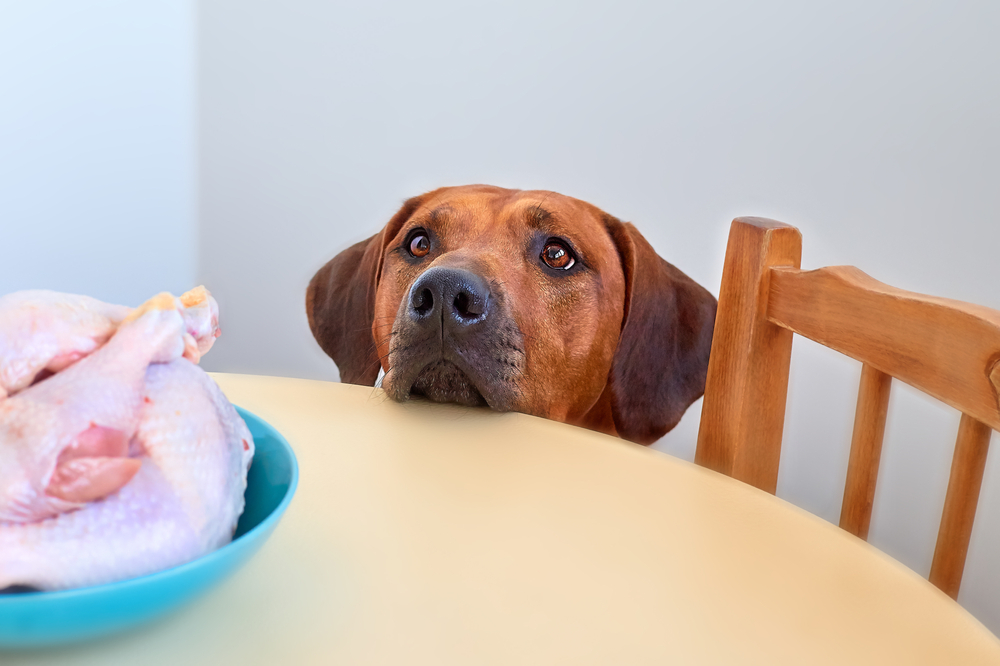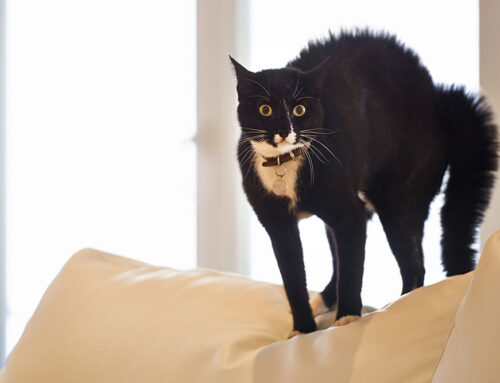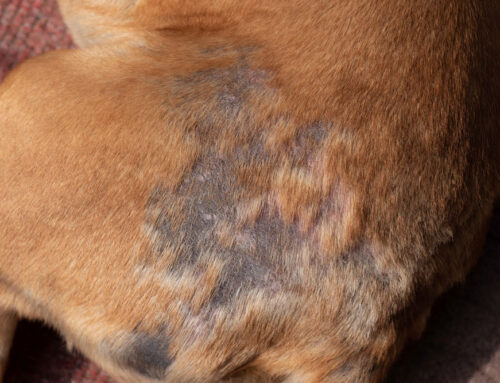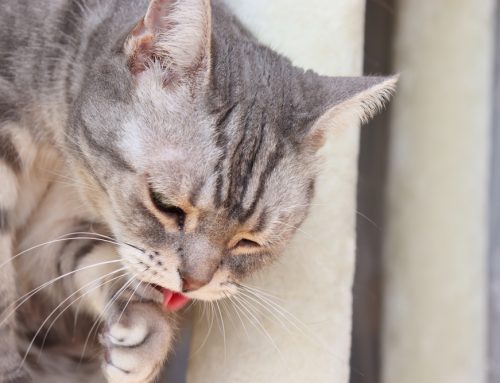While puppies and kittens are known for their penchant for mischief, senior pets can also find themselves in dangerous situations, especially during hectic holiday seasons. Whether they’re suffering from cognitive dysfunction, organ disease, or stress caused by an over-the-top celebration, your older pet needs extra care to remain safe and happy during holidays. Cater to your senior pet’s special needs during Thanksgiving the following three ways:
#1: Watch for cognitive dysfunction signs that could lead your senior pet into danger
As pets age, they experience decreased cognitive function, similar to people with Alzheimer’s disease. These mental changes can make your pet nervous, forgetful, and stressed, which, when paired with the Thanksgiving celebration commotion, can create dangerous situations for your furry pal. Cognitive dysfunction signs in senior pets include:
- Disorientation — Pets with decreased mental function can become lost in familiar areas, get stuck behind furniture, or go to the hinge side of the door. They may also fail to recognize family members.
- Interaction changes — Your senior pet may interact differently with you or other household pets. They may become clingy, disinterested, or irritable when approached or petted. Pets who were once social butterflies may hide when guests arrive, or may enjoy your company less.
- Sleep-wake cycle changes — Your aging pet may have difficulty sleeping at night, as they spend more time sleeping during the day. They may also whine or howl throughout the night, pace restlessly, or be unable to relax and rest during normal times, so ensure they have a quiet place when they need to relax during the festivities.
- Inappropriate elimination — Pets with cognitive dysfunction may forget their house training and eliminate indoors, which you want to avoid, especially when hosting guests. Take your pet outside more often than usual, giving them ample time to urinate and defecate. For cats, consider placing more litter boxes in easily accessible areas in your home, or confining your cat to a bedroom with two litter boxes to increase the odds of proper usage.
- Activity level changes — While older pets tend to be less active, they may develop odd behaviors that increase their activity, such as restless pacing, the inability to settle, or repetitive licking.
- Anxiety — Pets who become confused as their cognitive function decreases often become anxious and agitated, which they display through new fears or phobias, or worsening of current ones. They may also become clingy and overly dependent on their owners, and incredibly anxious with routine changes.
- Learning and memory — Pets with cognitive dysfunction can forget training they learned when young, such as no jumping, staying off the couch, keeping their paws off the table, or staying out of the trash can. If your pet forgets their basic manners, they may snatch leftovers and develop gastrointestinal upset, pancreatitis, or an intestinal obstruction.
Pay special attention to pets who show cognitive dysfunction signs, because they may become nervous and uncomfortable in a large gathering, or may get into trouble—or the trash—by forgetting their basic manners.
#2: Provide a comfortable, quiet resting place for your senior pet
Senior pets often prefer peace and quiet rather than the hubbub of a family gathering like Thanksgiving. Loud conversation, speedy children, and crowded areas can make your older pet anxious and distressed, and they likely will appreciate a comfortable place to rest and relax away from the crowd. Create a haven for your senior pet that is off-limits to your guests. Place an orthopedic bed and a cozy fleece blanket in a quiet room to help support stiff joints and keep your furry pal warm. Offer a Kong stuffed with your pet’s favorite treats—go easy on Thanksgiving table scraps—to distract them while you entertain your guests, or provide a different long-lasting treat. Play calming music, plug in a pheromone diffuser, or wrap your pet in a compression wrap for soothing support.
#3: Watch out for your senior pet’s sensitive stomach at Thanksgiving

Although you want to spoil your senior pet with tasty treats, especially during a delicious celebration like Thanksgiving, refrain from sharing tidbits from your plate. Senior pets often have more sensitive digestive tracts because of organ dysfunction, so are more prone to vomiting and diarrhea if they eat unusual foods. If you want to spoil your older pet during the Thanksgiving feast, offer them a small bite of boneless, skinless turkey breast or plain mashed potatoes. Avoid fatty foods, such as turkey skin and gravy, and toxic foods, like raisins, chocolate, xylitol, and unbaked yeast dough, as these foods can lead to life-threatening pancreatitis or toxicity.
Senior pets are not as robust as young adult cats and dogs, and are more susceptible to illness, especially around stressful holiday seasons. If your furry companion suffers from gastrointestinal distress or anxiety duringThanksgiving, call your Tidmore Veterinary Hospital team for help.








Leave A Comment